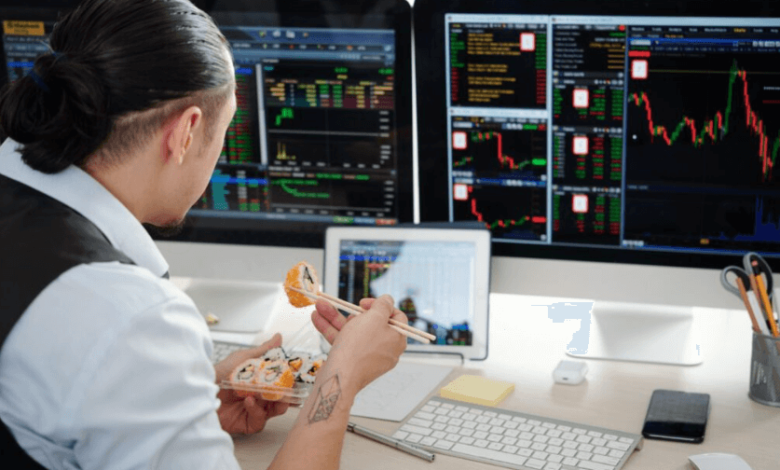What to Expect from a Proprietary Firm Evaluation Process?

Proprietary companies give traders access to large sums of money—but only once they have shown their ability by a thorough review process. This assessment tests consistency, discipline, and risk management; it goes beyond simple trade profitability. Every stage is meant to evaluate psychological resilience as well as technical knowledge. Approaching the evaluation gives traders access to the resources of the company, enabling them to grow their activities free from personal risk. Increasing the possibility of obtaining a funded account depends on knowing the organization and expectations of this process.
The Proprietary Firm Evaluation Multi-stage Structure
Most private companies evaluate a trader’s capacity to control risk and preserve profitability using a multi-stage approach. Usually following rigorous risk limits, the first stage is on achieving a profit target within a given period. Beyond these restrictions—such as breaking the daily loss cap—you risk disqualification, so guaranteeing only disciplined traders advance.
The second stage brings sustainability to the front stage. Companies here assess whether traders can provide consistent returns without acting carelessly. Often accompanying tougher regulations are lower profit targets, which force traders to keep methodical, under-control execution. Every level is meant to find traders who can consistently perform under duress—a crucial ability for controlling significant capital.
Assessing Psychological Discipline and Risk Management
Any evaluation of a private company starts with risk management. Control of losses and consistent return generation define success. Companies set tight drawdown limits and assess traders’ compliance with these limits. Under pressure, one must remain calm; emotional reactions like revenge trading indicate inadequate risk control and cause failure.
Beyond mere technical ability, companies evaluate psychological discipline. Traders have to show that they can stick to their strategies in the face of market volatility and consecutive losses. One of the main signs of being ready to manage big amounts of capital responsibly is staying cool and logical while implementing plans under pressure.
Recognizing the Prop Firm Challenge and Its Reversal in the Real World
Getting a funded account starts with the prop firm challenge. This challenge reflects actual market conditions, where every choice affects long-term performance. Companies examine every trade closely for adherence to profit margins and risk criteria. If a trader breaks company policies, even one who makes money will fail.
This test assesses whether a trader can manage professional-level expectations, not only tests performance. Not only does successful completion of open financing, but it also tells the company a trader has the discipline and ability to control large capital under live conditions.
How Private Companies Track Trading Activity
Private companies keep a close eye on trading activity throughout the assessment to spot trends that point to either skill or negligence. Every trade is examined for fit with the trader’s stated approach. Companies look for deviations that point to a lack of discipline, such as impulsive entries or departures.
Consistency is really important. Companies evaluate whether traders follow pre-defined strategies or pursue emotionally driven chase trades. Beyond their performance in trade, companies see how traders manage pressure, including drawdowns and extended market volatility. Passing the evaluation mostly depends on keeping a consistent approach, even in the erratic nature of the market. Apart from that, private companies check traders’ adherence to risk guidelines. Those who regularly follow position-sizing guidelines and avoid overleveraging show the maturity needed to handle big amounts of money properly.
The Function of Performance Metrics and Data Analysis in Evaluations
To assess traders, proprietary companies depend on exact performance measures. Beyond profit and loss, they monitor important markers, including win rate, risk-to-reward ratio, and strategic consistency. These measures expose whether a trader bases his success on high-risk bets or repeatable techniques.
Consistency is quite important. Companies look at whether traders keep consistent performance in many different market environments. Deviations from a stated trading plan raise questions about poor discipline. Those who show consistent returns and controlled execution are the ones who eventually find financing.
Changing with the Times in Dynamic Markets During Evaluation
Proprietary companies demand traders to change with the times in the market. The assessment process looks at whether traders might change their plans in reaction to volatility or unanticipated events without sacrificing risk control. In dynamic situations, static methods usually fail; hence, flexibility is a very important ability.
Adaptability also permeates trade management. Companies value traders who understand when to strategically modify stop-loss levels, scale positions, and exit trades. A defining quality of effective candidates who move through the evaluation process is their capacity to flourish in several market conditions.
Conclusion
Approaching a proprietary firm evaluation calls for more than just meeting profit goals. It calls for emotional stability, disciplined risk management, and adaptability under real market conditions. Every level is meant to find traders who can regularly and responsibly handle capital. Traders set themselves for long-term success in the proprietary trading environment by knowing these expectations and concentrating on sustainable performance.


